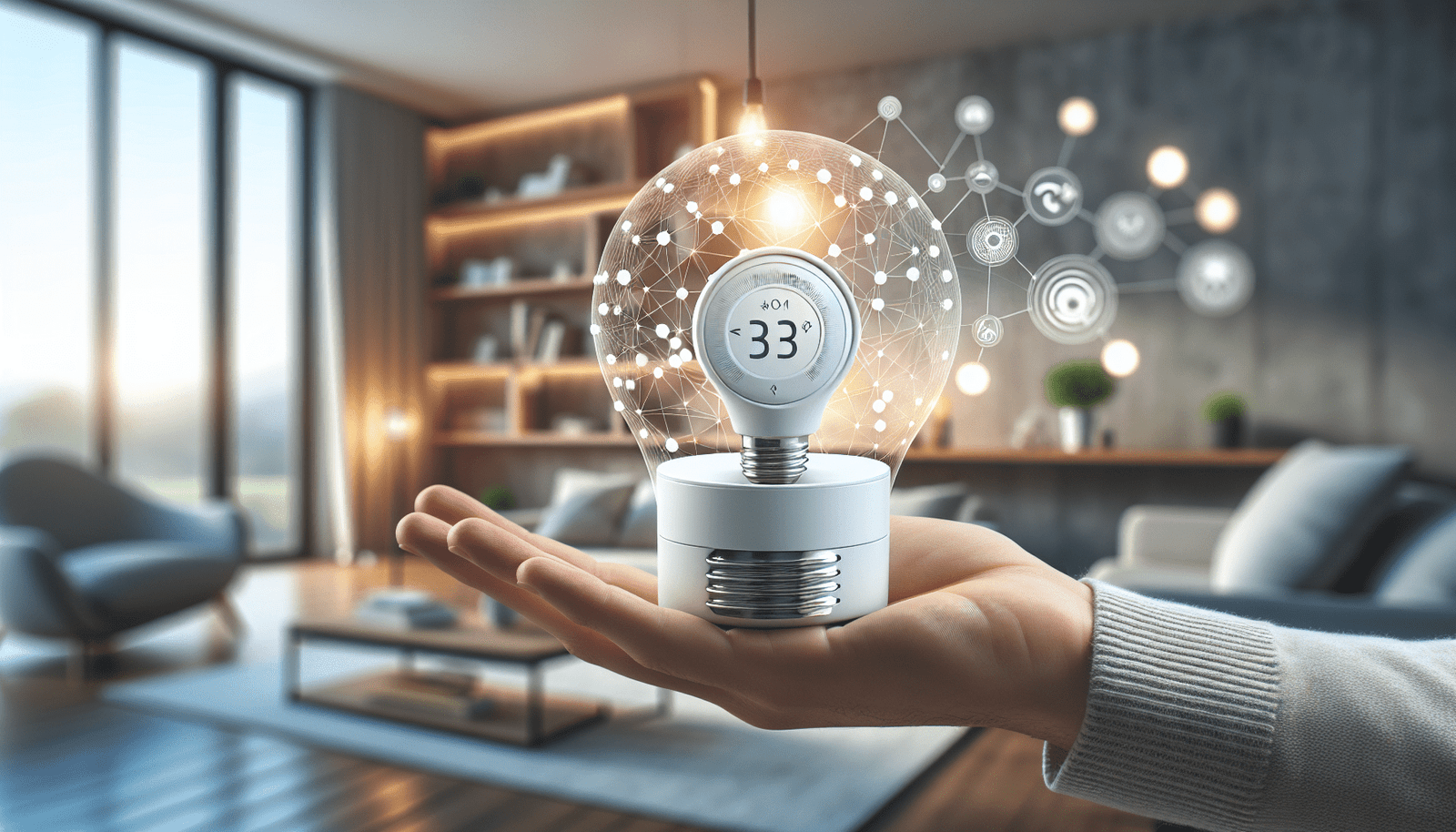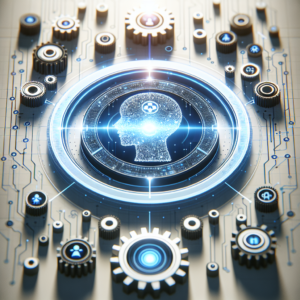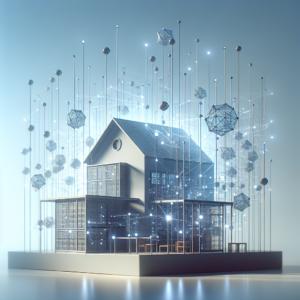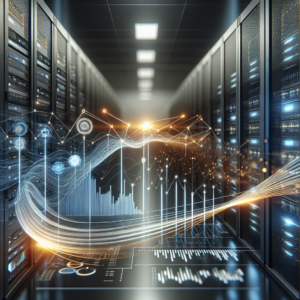Have you ever considered how interconnected our lives have become thanks to technology? The Internet of Things (IoT) is transforming not only how we live but also how we work, connecting everything from our household appliances to entire industries. I find it fascinating to see how this concept is evolving and what the future holds for us.
Understanding the Internet of Things (IoT)
The Internet of Things refers to the network of physical objects embedded with sensors, software, and other technologies that enable them to connect and exchange data with other devices over the internet. I often think about how this interconnectedness can lead to smarter decisions, improved efficiencies, and enhanced experiences in both our personal and professional lives.
The Origins of IoT
The idea of connecting devices has been around for quite some time. The term “Internet of Things” was coined in 1999 by Kevin Ashton while discussing the future of RFID (Radio-Frequency Identification) usage in supply chain management. Since then, the idea has grown tremendously, with devices now capable of smart communication and automation.
A Brief Overview of IoT Applications
IoT applications are vast and diverse. Some common examples I often see in daily life include:
- Smart Homes: From smart thermostats to connected lighting, these devices help me manage my home environment more efficiently.
- Wearable Devices: Fitness trackers and smartwatches provide me with real-time health data and reminders for better health management.
- Smart Cities: Urban development has embraced IoT to improve resource management, traffic flow, and public safety.
- Healthcare: Remote monitoring tools allow healthcare providers to track patients’ health data, enabling timely medical interventions.
The Benefits of IoT
I appreciate the many advantages that the Internet of Things brings. While technical innovations may feel overwhelming at times, these benefits are tangible and impactful.
Increased Efficiency
One of the primary advantages I notice is increased efficiency. Through automation and data analysis, IoT devices can optimize various processes. For example, in my daily routine, a smart thermostat learns my preferences and automatically adjusts the temperature, saving energy and enhancing comfort.
Enhanced Data Collection
IoT devices facilitate a continuous flow of data. This wealth of information helps organizations and individuals make informed decisions. I can track my fitness progress through my smartwatch, gathering valuable insights that motivate my wellness journey.
Improved Safety and Security
IoT enhances safety and security in multiple ways. For instance, smart home devices can alert me to potential dangers, such as smoke or carbon monoxide. In industries, real-time monitoring of equipment can prevent accidents and ensure worker safety.
Challenges Facing IoT
As much as I admire the potential of IoT, I’m also aware of the challenges that come with this technology. Understanding these issues is crucial for navigating the future of IoT successfully.
Security Concerns
Cybersecurity is one of the most pressing issues in IoT. With so many devices connected, I worry about the risk of potential hacks and data breaches. It’s essential to stay informed about security measures, such as using strong passwords and keeping software up to date.
Interoperability
With a plethora of IoT devices available, interoperability—managing communication among various devices—remains a challenge. I often find myself frustrated when devices from different manufacturers don’t work seamlessly together. The industry is gradually working toward standard protocols to address this.
Data Privacy
As my devices collect more data, I become increasingly conscious of privacy concerns. I want to ensure that my personal information is protected. Understanding the implications of data collection and usage is essential in making informed choices about which devices to integrate into my life.
The Future of IoT
The horizon of the Internet of Things appears promising. It’s inspiring to think about the innovations that lie ahead and how they will shape my everyday experiences.
Expansion of AI and Machine Learning
As IoT continues to evolve, I foresee the integration of artificial intelligence (AI) and machine learning. These technologies will enhance the capabilities of IoT devices, allowing them to learn from user behavior and make even smarter decisions. For instance, my smart home might anticipate my daily routines and make adjustments before I even think about it.
Increased Standardization
Standardization is crucial for the growth of the IoT ecosystem. I believe that collaboration among tech companies will lead to the development of universal protocols and compatibility. This means that in my future home, I can mix and match devices from different brands effortlessly.
Expansion in the Industrial Sector
Industry is one area where I’ll see significant growth and innovation due to IoT. Smart factories will rely on connected machinery, allowing for predictive maintenance, improved production efficiency, and reduced downtime. It’s exciting to see how industries will transform, ultimately leading to better products and services for consumers.
IoT in Everyday Life
Thinking about how IoT will be a part of our daily routines in the future brings a sense of wonder. I can imagine waking up in my smart home, where everything is adjusted to my preferences without me lifting a finger.
Smart Homes
I look forward to a future where my smart home doesn’t just respond to commands but intuitively knows what I need. From smart refrigerators that suggest recipes based on the ingredients I have, to mirrors that provide me with my schedule for the day, the possibilities seem endless.
Connected Vehicles
As I ponder the future of transportation, I anticipate more connected vehicles on the road. These cars will communicate with traffic signals, other vehicles, and potentially with pedestrians. Features like collision avoidance systems and route optimization based on real-time traffic data could revolutionize my daily commute.
Personalized Health Management
The impact of IoT on health management excites me tremendously. Wearables will evolve to offer more personalized insights into my health, alerting me to potential issues before they become serious. I can imagine remote health consultations becoming standard, where my health data is shared in real-time with my healthcare providers.
The Role of Governments in IoT Development
I think it’s important to recognize the role governments play in shaping the future of IoT. They can facilitate the growth of IoT by establishing regulations and frameworks that promote innovation while ensuring consumer protection.
Infrastructure Development
I see governments investing in digital infrastructure to support IoT deployment, such as improving internet connectivity and expanding broadband access. These investments will also create environments where IoT devices can thrive, especially in rural areas.
Regulatory Frameworks
As IoT grows, I believe that governments will establish regulatory frameworks to protect consumers and promote industry best practices. I feel reassured knowing that regulations could help ensure devices are secure and data privacy is prioritized.
Promotion of Research and Development
I admire how governments can promote research and development in IoT technologies through grants and incentives. Supporting innovation will lead to new solutions that address challenges and enhance the positive impact of IoT.
The Importance of Education and Skill Development
As we move into a future dominated by IoT, I recognize the importance of education and skill development. Adapting to these changes will require a workforce that is well-versed in new technologies.
Curriculum Development
I hope to see educational institutions integrating IoT-related subjects into their curricula. Courses on data analysis, cybersecurity, and programming will prepare students for fulfilling careers in this growing field.
Upskilling the Current Workforce
For those currently in the workforce, upskilling will be essential. Training programs will help me and others stay relevant in a rapidly changing job market, ensuring we’re prepared to embrace new opportunities.
Preparing for an IoT-Driven Future
As I think about how to prepare for this IoT-driven future, I realize that being informed and adaptable will be key. Here are some steps I find helpful in getting ready for the changes ahead.
Stay Informed
I make it a priority to stay up to date on emerging technologies and trends in IoT. By subscribing to relevant podcasts, newsletters, and blogs, I can engage with the community and learn from others’ experiences.
Embrace Technology
I try to embrace new technologies that enhance my life. Adopting IoT devices incrementally helps me adapt without feeling overwhelmed. I can gradually incorporate smart devices into my lifestyle, making it easier to understand their functionalities and benefits.
Advocate for Ethical Practices
Since data privacy and security are important to me, I strive to advocate for ethical practices in IoT development. Supporting companies that prioritize consumer protection reinforces the idea that we deserve transparency and security in our technological interactions.
Conclusion
Reflecting on the potential of the Internet of Things fills me with excitement for the future. While there are challenges to navigate, the benefits and innovations that lie ahead are remarkable. Whether it’s through the enhancement of our homes, workplaces, or cities, I truly believe that IoT will reshape our lives for the better.
As I embrace this technological evolution, I remain optimistic. The future is interconnected, and by understanding and participating in this dynamic landscape, I hope to contribute to a world where technology improves our experiences, simplifies our routines, and ultimately brings us closer together.
In the grand scheme of things, I think it boils down to our attitude towards change. Embracing the unknown can lead to exciting opportunities, and I can’t wait to see how the Internet of Things continues to evolve and enrich our lives.






